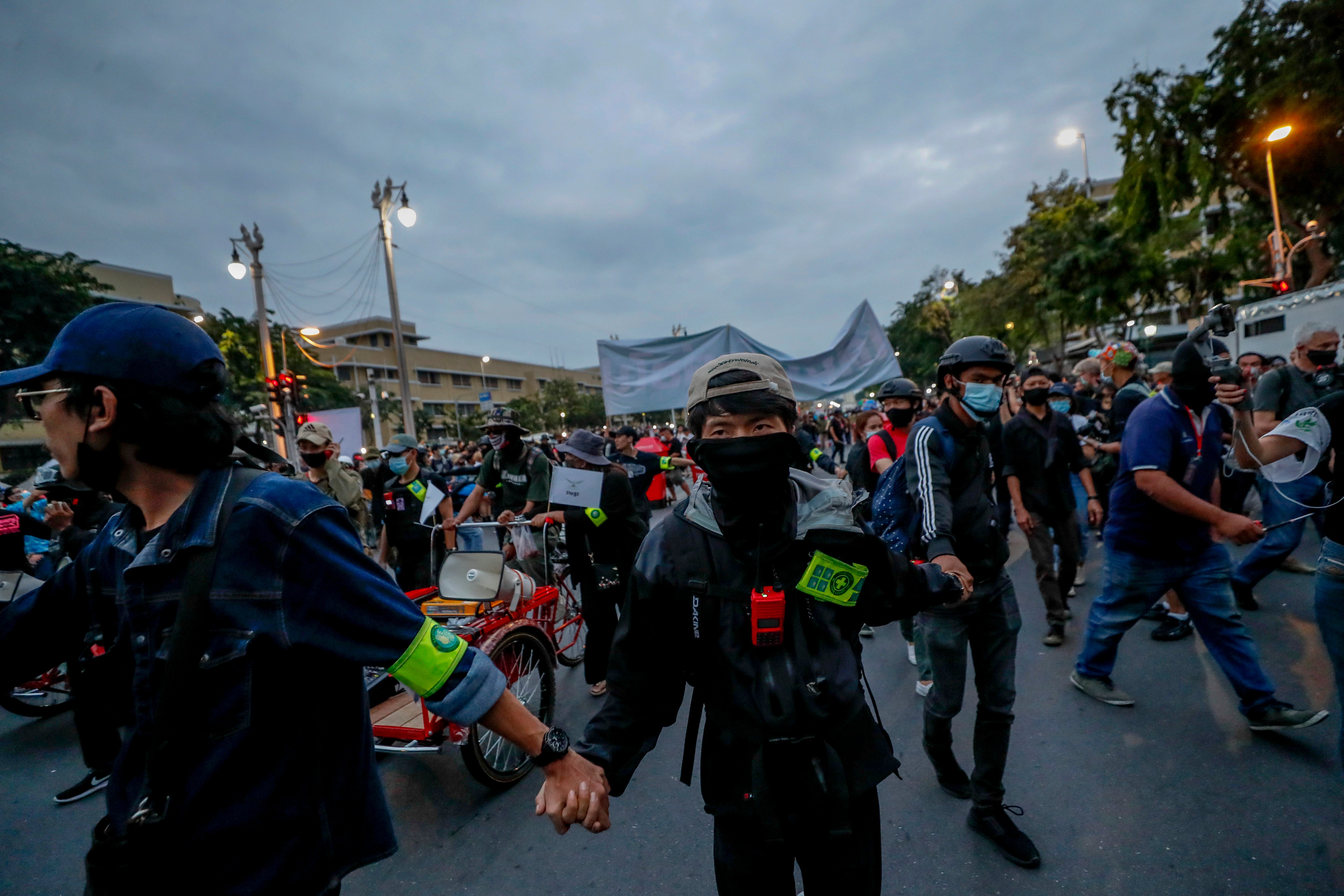Thai police use water cannons on pro-democracy protesters
Thai pro-democracy protester have been confronted by riot police and sprayed by water cannons as they tried to approach Bangkok’s Grand Palace to deliver letters about their political grievances addressed to the country’s king

Your support helps us to tell the story
From reproductive rights to climate change to Big Tech, The Independent is on the ground when the story is developing. Whether it's investigating the financials of Elon Musk's pro-Trump PAC or producing our latest documentary, 'The A Word', which shines a light on the American women fighting for reproductive rights, we know how important it is to parse out the facts from the messaging.
At such a critical moment in US history, we need reporters on the ground. Your donation allows us to keep sending journalists to speak to both sides of the story.
The Independent is trusted by Americans across the entire political spectrum. And unlike many other quality news outlets, we choose not to lock Americans out of our reporting and analysis with paywalls. We believe quality journalism should be available to everyone, paid for by those who can afford it.
Your support makes all the difference.Thai pro-democracy protesters were confronted by riot police and sprayed by water cannons Sunday as they tried to approach Bangkok's Grand Palace to deliver letters about their political grievances addressed to the country s king
The protesters had pushed aside a bus that was serving as a barrier to try to approach the palace, which houses the royal offices. The protesters had met earlier at Bangkok's Democracy Monument and marched as darkness fell, pushing past an initial thin line of police.
The water cannons were employed by the police for just a short time, and it was not clear if anyone was hurt in the chaos.
Thailand’s pro-democracy movement has been pushing a bold challenge to reform the monarchy with almost daily demonstrations. Sunday marked the second time water cannons had been used against them during several months of demonstrations.
The student-led movement, which over several months has seized the political initiative, has put enough pressure on the government of Prime Minister Prayuth Chan-ocha to call for Parliament to deal with at least some of their demands.
They are seeking Prayuth’s resignation, changes to the constitution to make it more democratic and reforms to the monarchy to make it more accountable.
The protesters believe Prayuth lacks legitimacy because he came to power after an election last year whose rules were set up under military rule. Prayuth as army chief in 2014 led a coup ousting an elected government and then headed the junta that ran the country until last year’s polls.
A new constitution was put into effect by the junta that the protesters also consider illegitimate and anti-democratic.
The third demand, calling for reform of the monarchy, is the most controversial. The monarchy has traditionally been an untouchable institution, regarded by most Thais as the heart and soul of the nation. A lese majeste law mandates a prison term of up to 15 years for anyone who defames the king or his close family.
Until the protesters raised the issue, public criticism of the royal institution was virtually unknown.
While the protesters have increasingly put the monarchy issue front and center, they have received serious pushback. Even the main opposition party, otherwise sympathetic to their other points, has said it does not want to amend laws covering the monarchy, and royalists have started holding counter-demonstrations.
Parliament has agreed to debate amending the constitution and political leaders are discussing setting up a reconciliation committee, an effort that so far has been rejected by the protesters.
But Prayuth has insisted he won’t step down, and any effort to reform the monarchy seems to be a dead end, leaving the situation deadlocked.